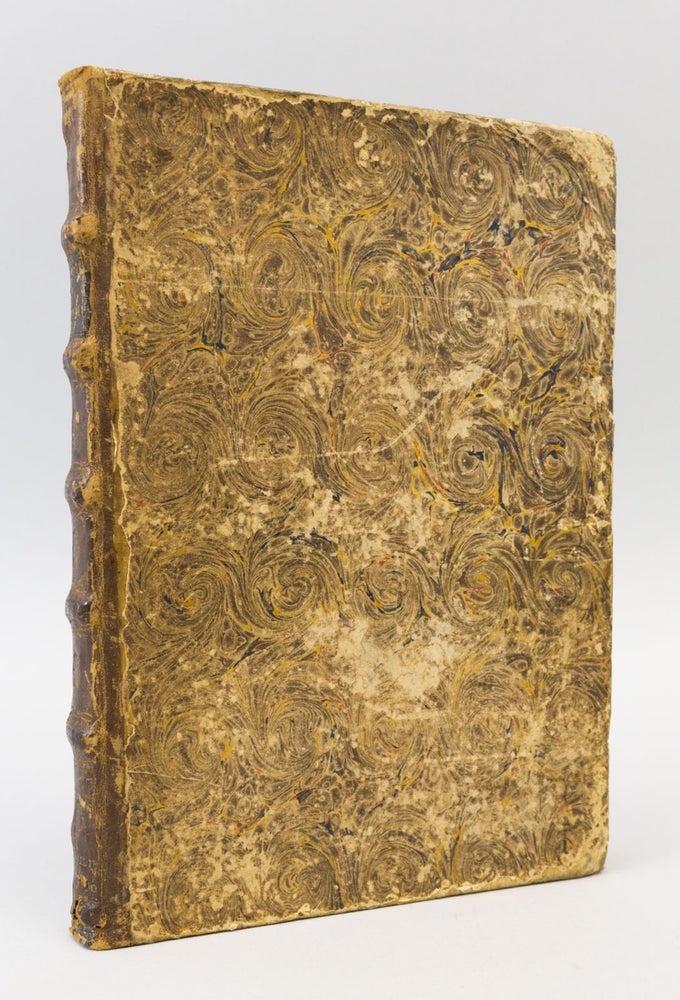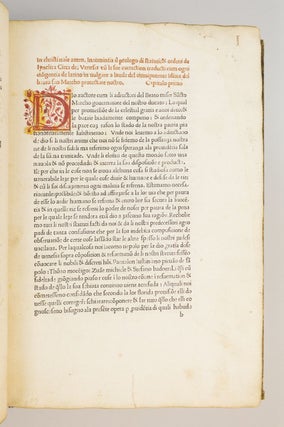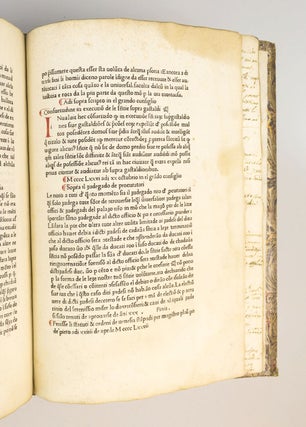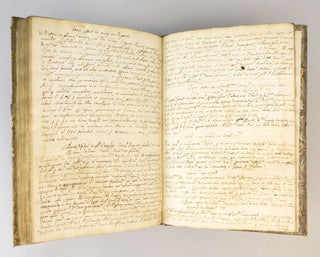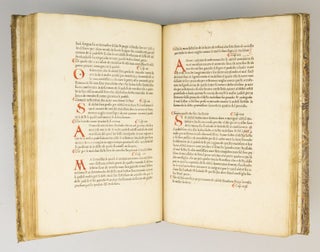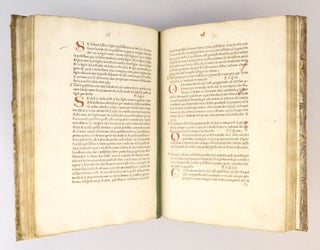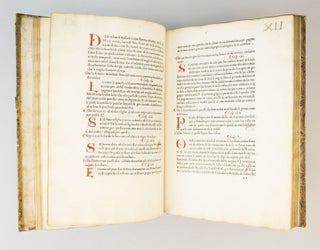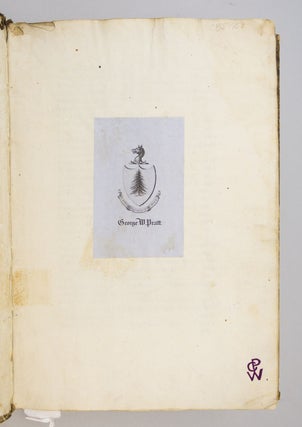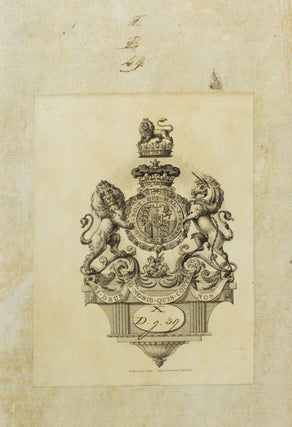LI STATUTI & ORDENI DE VENESIA.
([Venice]: Filippo di Pietro, 1477). 294 x 198 mm. (11 1/2 x 7 3/4"). [87] leaves (lacking first blank), [4] leaves of manuscript notes. Single column, 34 lines, roman type. FIRST EDITION.
18th century calf-backed marbled paper boards, raised bands, spine panels with gilt floral sprig, black morocco label. Paragraph marks in red, numerous three-line initials painted red, one five-line initial painted red with floral decoration and gold highlights. With manuscript foliation (both Arabic and Roman numerals) and a few marginal notes in an early (16th century?) hand. Front pastedown with an armorial bookplate of Augustus Frederick, Duke of Sussex (about whom, see below); front free endpaper with the bookplate of George W. Pratt, and a purple stamp bearing the initials "GWP"; four smaller, loose sheets of bibliographical notes by various modern hands laid in. Goff S-724; BMC V, 219; Walsh 1662. ◆Binding with significant general wear, but entirely sound. Light marginal dampstain in the upper corner, becoming slightly darker and extending the length of the margin on the last 20 or so leaves, some uneven toning (more than half the leaves quite bright but the rest a shade or two darker), other minor imperfections in the text, but still an appealing copy internally, generally fresh and with extremely comfortable margins.
This is an attractively rubricated copy of the first appearance of the first printed book on the laws and statutes of Venice as well as one of the first to include maritime law and customs in print. Given Venice's role as a commercial powerhouse (and an early model of capitalism) in the Medieval period, this work is of obvious interest to the student of law and economics. At the time this work was printed, Venice was one of the wealthiest cities in the world as well as one of the most populous in Europe (by some estimates second only to Paris). With sea trade at the center of this wealthy and powerful Republic, the section on maritime law here necessarily occupies a good portion of the text and includes a broad range of regulations pertaining to cargo and equipment, payments and wages, disputes between sailors, abandonment by crew members, arming ships, and much more. We have not been able to decipher in full the notes in manuscript that appear after the primary text, but a pencil note on the rear pastedown dated 1851 mentions that they are "more recent decrees" made into law after the book had been published. Pollard notes that our printer, Filippo di Pietro (active 1472-82), published about 40 works in his career (after separating from his kinsman Gabriele in 1474), most of which were literary, including editions of Aristotle, Cicero, and Dante. The present work comes with a very desirable provenance. Augustus Frederick, Duke of Sussex (1773-1843) was the sixth son of George III and his wife Charlotte Sophia. He amassed a huge library containing "upward of fifty thousand volumes of Mss and printed books" according to the account of Thomas Joseph Pettigrew, the Duke's librarian (and surgeon!). In 1844, following the Duke's death, the library was sold off in order to cover his considerable debts (no doubt in part due to his penchant for book buying). The book later came to George W. Pratt (1830-62), an American senator, Union Army officer, and avid book collector with more than 8,000 volumes in his library, according to a contemporary account. He was the son of Zadock Pratt who built the largest tannery in the world (including an entire town to operate it), in the Catskill Mountain region. This copy is recorded in the ISTC as one of only five in the US (also Harvard, Yale, LC, and the Morgan). It also appears to be extremely rare on the market--we could not find a single auction record on either RBH or ABPC. (CBJ1751)
Price: $32,000.00

